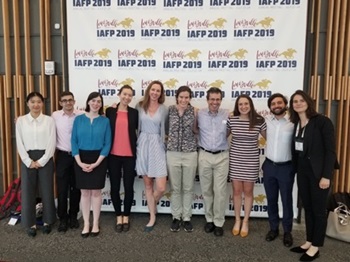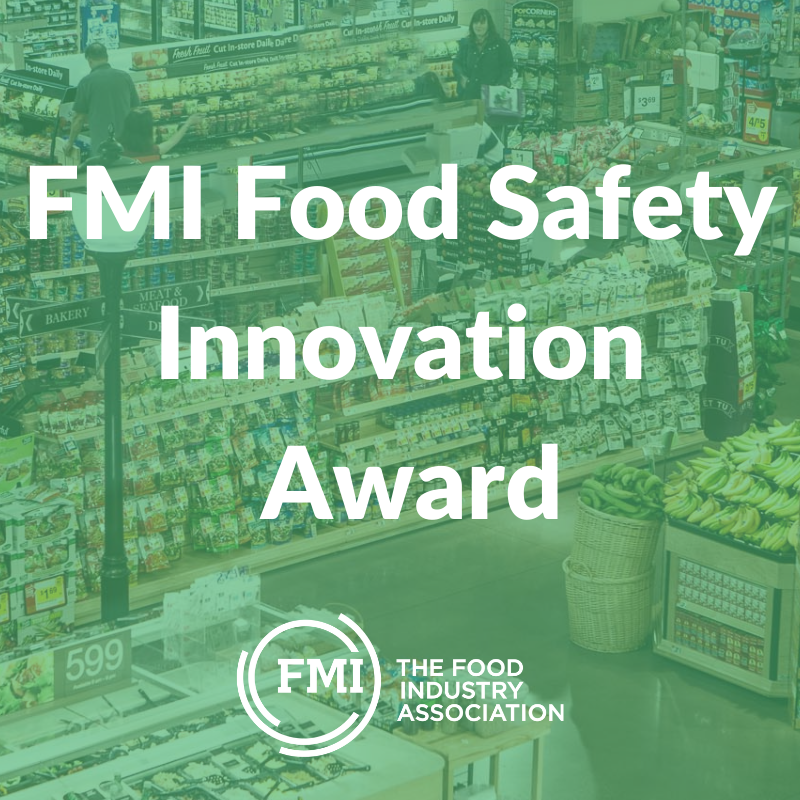By: Adam Friedlander, MS, Manager, Food Safety and Technical Services, Food Marketing Institute
 Developing the next generation of food safety leaders is a top priority for FMI members. To help in this effort, the International Association for Food Protection (IAFP) serves as an organization committed to cultivating leaders and fostering professional growth among food safety professionals. Each year, IAFP hosts an annual meeting that brings together food safety professionals from around the world to share innovative solutions and forward-thinking research with the aim of protecting our global food supply. This year’s meeting in Louisville, Kentucky, brought together nearly 4,000 attendees, including food safety professionals from FMI member companies.
Developing the next generation of food safety leaders is a top priority for FMI members. To help in this effort, the International Association for Food Protection (IAFP) serves as an organization committed to cultivating leaders and fostering professional growth among food safety professionals. Each year, IAFP hosts an annual meeting that brings together food safety professionals from around the world to share innovative solutions and forward-thinking research with the aim of protecting our global food supply. This year’s meeting in Louisville, Kentucky, brought together nearly 4,000 attendees, including food safety professionals from FMI member companies.
Undoubtedly, there were many sessions that were of value to the retail food industry, but the presentations on the applications of artificial intelligence (AI) and machine learning (ML) were fascinating and of particular interest to me, especially from a food safety perspective.
In a presentation titled, “Use of AI for Food Safety in Retail and Food Service,” Claire Zoellner, PhD, a food safety scientist expert, discussed the importance of including food safety teams in managerial discussions surrounding the incorporation and return on investment (ROI) of AI and ML in a retailer’s daily operation.
Here are a few scenarios where AI and ML applications can help retailers strengthen their food safety programs:
- Train employees, from new hires to retail executives, on proper hygiene protocols and sanitation procedures using augmented reality (AR) or virtual reality (VR) to improve overall food safety knowledge
- Utilize predictive modeling in food preparation areas by mapping out high-risk production environments, informing managers to take corrective actions and preventing re-contamination
- Partner with public health agencies, academic institutions and technology firms to leverage AI and MLdata that assists in the identification of contamination sources during foodborne outbreak investigations
Food retailers are frequently at the forefront of introducing emerging technologies that help protect public health. Yet, artificial intelligence and machine learning cannot solve all food safety problems by themselves. While they can be useful tools for overcoming or assisting in food safety challenges, they’re not without risk. Human bias, security (vulnerability to malicious attacks) and data inaccuracy are a few inherent risks that retailers must consider when implementing AI or ML for their operation.
Therefore, the introduction of AI and ML in the retail space will require the next generation of food safety professionals to think and work differently. Adoption of AI and ML technologies will require a diverse workforce who have backgrounds in sociology, computer science, regulatory and food safety to ensure safe, secure and accurate application and implementation.
Ultimately, retailers can continue to develop robust food safety leaders and ensure the health and well-being of all customers, all while exploring the feasibility of AI and ML technologies to improve overall food safety programs.
For more information on artificial intelligence and machine learning, check out these FMI resources:


 Industry Topics address your specific area of expertise with resources, reports, events and more.
Industry Topics address your specific area of expertise with resources, reports, events and more.
 Our Research covers consumer behavior and retail operation benchmarks so you can make informed business decisions.
Our Research covers consumer behavior and retail operation benchmarks so you can make informed business decisions.
 Events and Education including online and in-person help you advance your food retail career.
Events and Education including online and in-person help you advance your food retail career.
 Food Safety training, resources and guidance that help you create a company food safety culture.
Food Safety training, resources and guidance that help you create a company food safety culture.
 Government Affairs work — federal and state — on the latest food industry policy, regulatory and legislative issues.
Government Affairs work — federal and state — on the latest food industry policy, regulatory and legislative issues.
 Get Involved. From industry awards to newsletters and committees, these resources help you take advantage of your membership.
Get Involved. From industry awards to newsletters and committees, these resources help you take advantage of your membership.
 Best practices, guidance documents, infographics, signage and more for the food industry on the COVID-19 pandemic.
Best practices, guidance documents, infographics, signage and more for the food industry on the COVID-19 pandemic.
